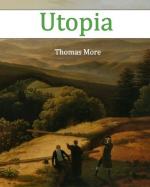|
This section contains 3,520 words (approx. 12 pages at 300 words per page) |

|
SOURCE: “Coming Home: Four Feminist Utopias and Patriarchal Experience,”* in Future Females: A Critical Anthology, edited by Marleen S. Barr, Bowling Green State University Popular Press, 1981, pp. 63-70.
In the following essay, Pearson observes affinities in modern feminist utopian novels and suggests that such works “seek to transcend the limitations of female experience.”
Feminist utopian fiction implicitly or explicitly criticizes the patriarchy while it emphasizes society's habit of restricting and alienating women. Each work discussed here assumes that the patriarchy is unnatural and fails to create environments conducive to the maximization of female—or male—potential. Upon discovering a sexually equalitarian society, the narrators have a sense of coming home to a nurturing, liberating environment.1
The creators of feminist utopias envision societies which are surprisingly similar. Mary Bradley Lane's Mizora: A Prophesy2 and Charlotte Perkins Gilman's Herland3 were originally serialized in newspapers and grew out of the nineteenth-century...
|
This section contains 3,520 words (approx. 12 pages at 300 words per page) |

|


